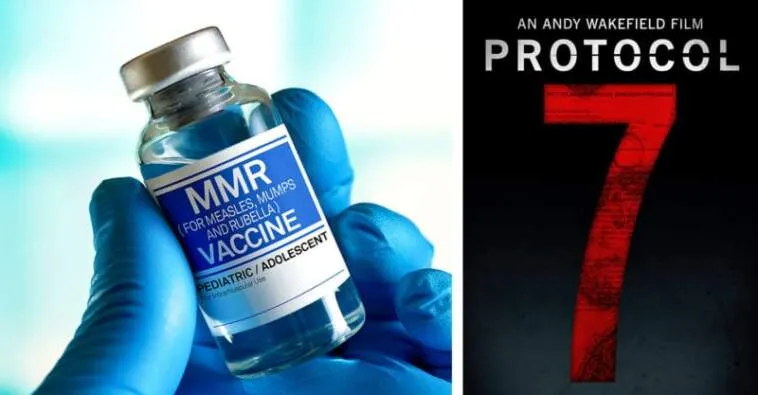(The Defender) Stephen Krahling and Joan Wlochowski, virologists working for the pharmaceutical giant Merck in West Point, Pennsylvania, became whistleblowers in the early 2000s after they alleged that upper management tried to get them to go along with a scheme to falsify data in tests related to the mumps component of the measles, mumps and rubella (MMR) II vaccine.
Merck sold the MMR II vaccine to the U.S. government and made over $700 million per year on it.
In 2010, Krahling and Wlochowski filed two separate lawsuits against Merck under the False Claims Act, alleging Merck violated the Sherman Anti-Trust Act by falsifying research data that enabled it to develop a monopoly on the vaccine and block any competition.
According to the lawsuits, Merck also violated multiple state laws prohibiting fraud.
In January, one of the lawsuits was dismissed without any ruling as to whether Merck committed any fraud but rather because the court found that even if there were any misrepresentations, they were not “material” — important — to the government’s decision to contract with Merck for its mumps vaccine.
That dismissal is currently being appealed and the outcome of the other lawsuit is still pending, with a U.S. District Judge having thrown out Merck’s attempts at dismissal.
According to the lawsuits, Merck’s management told Krahling and Wlochowski and other employees to withhold information from lab tests revealing that the mumps component of the MMR II vaccine’s efficiency rate was below the 95% rate that it claimed.
Krahling and Wlochowski claim Merck’s management threatened to have them jailed if they complained to the U.S. Food and Drug Administration (FDA).
According to a report in The Blaze, court documents include an admission by an FDA employee that Merck — the sole distributor of the mumps vaccine in the U.S. since 1967 — was changing raw data with no justification.
One of the plaintiffs’ lawyers’ complained to a judge that rather than answering questions about the efficiency of its tests, Merck cited data from nearly 50 years ago!
After Krahling and Wlochowski filed suit, a team of physicians also filed a lawsuit with the same claims about Merck manipulating data and making false claims about its mumps vaccine’s efficiency.
Between 2007-2019, as many as 94% of those who contracted mumps received the MMR II vaccine, according to The Blaze.
The New England Journal of Medicine attributed large mumps outbreaks in 2006 and 2009 to “[MMR II] vaccine failure.”
Kids who were vaccinated also developed autism at a higher rate than normal and suffered from other side effects that Merck has never been forthcoming about.
‘Protocol 7’ dramatizes efforts to expose corruption at Merck
“Protocol 7,” a new film released by Yow Media, dramatizes Krahling and Wlochowski’s story and efforts to expose corruption at Merck and throughout the pharmaceutical industry.
The film’s name derives from the clinical trial in which Merck doctored the data in a desperate attempt to meet the 96% efficiency threshold required by the Centers for Disease Control (CDC).
“Protocol 7” director Andy Wakefield lost his medical license in the U.K. after authoring a 1998 study in The Lancet suggesting the need for more research on a link between the MMR II vaccine and autism.
As he describes in his book, “Callous Disregard: Autism and Vaccines—The Truth Behind a Tragedy” (New York: Skyhorse Press, 2011), Wakefield was maligned in the U.K. media and subjected to “kangaroo court” type proceedings, though follow up studies corroborated his research.
Today, Wakefield helps autistic kids in Austin, Texas, and is a leading light in the medical freedom movement, which is distrustful of Big Pharma’s role in the over-prescription and medication of patients and favors natural health remedies and lifestyle adjustments as a pathway to improved health.
The character of Dr. Adrien Jay in “Protocol 7,” played by Matthew Marsden, is modeled after Wakefield. After witnessing the falsified tests, Krahling, played by Josh Murray as Steve Schilling, consults with Dr. Jay to try to better understand Merck’s fraudulent practices.
A twist in the film is that the lawyer who represents the whistleblowers, Alexis Koprowsky — played by Rachel G. Whittle — adopts a child from Africa who develops autism after being forced to take the MMR II vaccine.
Koprowsky’s crusade against Merck is thus deeply personal as she struggles to balance her career with the difficulties of raising an autistic child and earns the wrath of her community when she challenges the enforcement of vaccine mandates at a school board meeting.
That Whittle’s child is black is not by coincidence as Merck has been subjected to a third lawsuit by CDC scientist William Thompson. Thompson, who participated in a 2004 study of the MMR II vaccine, alleges Merck covered up data pointing to high rates of autism in African-American boys.
Schilling’s whistleblowing activities are also personal because his wife is expecting his first child and, at the end of the film, he tries to stop the doctors from vaccinating his newborn.
Many of the most compelling scenes in the film occur as the scientists wrestle with whether to go along or not with the fraud. The ones who do (David Kirk, played by Harrison Tipping, and Alan Stone, played by Alec Rayme) are motivated primarily by the allure of bonuses and careerist reasons.
Krahling and Wlochowski’s characters (the latter played by Emmy Robbin) decide to follow their conscience at the expense of their careers.
Part of the fraud involves testing on rabbits which offer a poor substitute for humans. Also, lab tests did not involve testing for a wild-type mumps virus that exists in nature and would confront a person in the real world.
Dr. Emilio Errani (played by Eric Roberts) is the Merck scientist who pushes for skewed results and co-opts FDA regulators who go along with the fraud after producing scientific papers without adequate references or footnotes.
Errani has Wlochowski’s character destroy all traces of unwanted test results based on the real-life story.
The film’s climax occurs at a deposition meeting when Koprowsky confronts Kirk and gets him to admit to the fudging of data and that Merck inflated the efficacy rate of the mumps vaccine tests.
Kirk at one point turns to Merck’s lawyer and expresses exasperation that some of the documents that Koprowky produced had not been shredded.
When Merck then offers a settlement, Krahling and Wlochowski decide to take the case to court hoping to get the dangerous vaccine off the market — though they recognize the litigation could take a long time.
Koprowsky’s character is reminiscent of Erin Brockovich, a paralegal played by Julia Roberts in the famous 2000 film, who successfully built a legal case against Pacific Gas and Electric Company, which had contaminated the groundwater in Hinkley, California.
“Protocol 7” also can be compared with “The Constant Gardener,” a 2005 film based on a John le Carré novel about a rapacious pharmaceutical giant that hides evidence of the fatal side effects of its tuberculosis drug and blithely kills anyone who threatens to reveal the truth.






